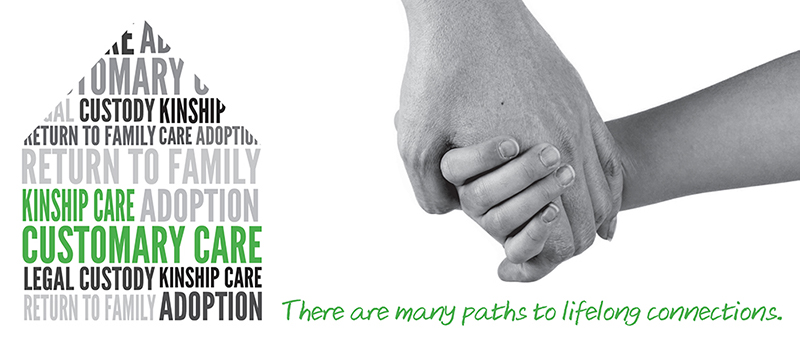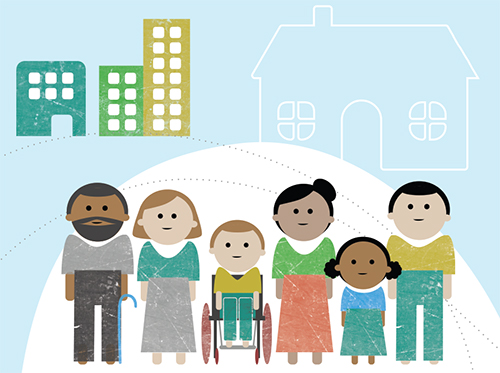
1
Children and youth in the care of the child welfare system really care about the adults in their extended networks – regardless of whether they are related to them or not. One research study documents that children living in foster care are deeply attuned to the power of these networks - much more than children and youth who are not in care.
2
Children and youth are safer and happier when extended kin networks are involved in their lives. A research study that focused specifically on adult mentors outside of the nuclear family has found that they provide unique protective benefits. Research also shows that broad kinship networks are linked to less anxiety, substance use, and antisocial behavior among children and youth. The protective impact of extended kin networks has also been studied among children and youth in care. The study’s findings show that kin play an important role in reducing the impact of maltreatment, and the trauma children and youth experience when they first come into care.
3
Community members who are familiar to a child or youth (also sometimes referred to as “kith”) can be great primary caregivers when children and youth are not able to live with their families. But research shows that occasional, informal acts of support also have a powerfully positive impact on children and youth who can’t live with their families. One research study measured the effects of informal support like visits, telephone calls, and tutoring for children and youth in care and based on the positive results argues for a “shift in current child welfare practice because the engagement of noncustodial extended family and fictive kin (a.k.a. community members) is not a priority in the field.”
4
Broad kinship networks also improve outcomes for children and youth in care because they provide invaluable respite to the primary temporary caregiver, whether it is a foster parent or kin parent who has stepped in. It doesn’t take research to know that a supported caregiver is a better parent. But kinship networks that support the primary caregiver are also linked to placement stability for children and youth. One research study shows that when the extended network supports the primary caregiver with services like transportation and babysitting they are less likely to become overwhelmed and quit.
5
Broad kinship networks are strong and highly valued in many racialized and ethnic communities, as well as in Indigenous communities. Given the known overrepresentation of both Indigenous and African Canadian children and youth in Ontario’s child welfare system, the Reconciliation Call to Action as well as the One Vision One Voice: Changing the Child Welfare System for African Canadians Race Equity Practices have recommended placing Indigenous and Black children and youth with their kinship networks within their communities.
* Access to many of the journal articles referred to in this article are available to CAS staff through OACAS’s library database subscriptions. Please contact Brynn Clarke for more information. The primary source for this article was: Leon, S. C., & Dickson, D. A. (2019). The impact of kinship networks on foster care children's outcomes. Family Relations, 68(2), 169-184. https://doi.org/10.1111/fare.12340
